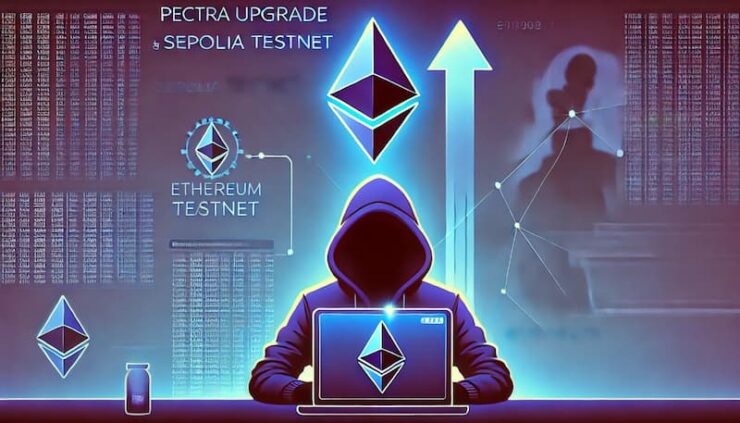Ethereum’s Pectra upgrade hit an unexpected roadblock on the Sepolia testnet after an unidentified attacker exploited an overlooked edge case, forcing the network to mine empty blocks.
According to Ethereum developer Marius van der Wijden, the attack leveraged a zero-token transfer loophole, disrupting block production and raising security concerns for future Ethereum network upgrades.
Despite a rapid response from developers, the incident forced Ethereum’s core team to postpone the Pectra upgrade, signaling the need for further testing and security enhancements.
How the Attack Unfolded
The Pectra upgrade went live on Sepolia at 7:29 AM on March 5, but developers immediately noticed errors appearing in geth node logs. The Ethereum deposit contract incorrectly triggered a transfer event instead of a deposit event, causing the first wave of issues.
While developers quickly deployed a fix, they missed one critical edge case, which an unknown attacker exploited by sending a zero-token transfer to the deposit contract.
“After a few minutes, we saw a lot of empty blocks again,” van der Wijden explained.
At first, the team suspected an accidental mistake from trusted validators, but after further investigation, they discovered that the malicious transaction came from a new account funded via a faucet, confirming deliberate interference.
The attack took advantage of a loophole in the ERC-20 standard, which does not forbid zero-token transfers. This means that even without owning tokens, a user can trigger transactions to another address, a flaw that the attacker weaponized against the testnet upgrade.
The only way to stop the attack, van der Wijden said, was to filter out all transactions interacting with the deposit contract.
Developers Go Silent to Outsmart the Attacker
Fearing that the attacker was monitoring internal developer chats, the Ethereum team decided not to publicize the fix. Instead, they quietly rolled out an update to a select group of DevOps nodes to restore full block production on the network.
By 2 PM, the update had been deployed across all nodes, successfully processing the unknown user’s transaction and restoring network stability.
Despite the disruption, finalization was never lost, and the attack remained isolated to Sepolia, as it used a token-gated deposit contract rather than the standard Ethereum mainnet contract.
The Sepolia attack follows previous challenges during the Holesky testnet upgrade on February 24, adding further setbacks to Ethereum’s Pectra deployment timeline.
As a result, developers have officially postponed the upgrade until further testing ensures network security and resilience.
What This Means for Ethereum’s Future Upgrades
While testnet disruptions do not impact Ethereum’s mainnet, they highlight potential vulnerabilities that must be addressed before implementing critical upgrades. This incident underscores the importance of rigorous stress testing, as bad actors are continuously probing the network for weaknesses.
For now, Ethereum’s developers remain focused on patching vulnerabilities, refining security measures, and ensuring Pectra’s smooth deployment, but the incident serves as a reminder that blockchain upgrades remain high-stakes endeavors.





